What is a ‘Leaky Gut’?
The term ‘leaky gut’ is relatively new, and the medical community actually calls it ‘intestinal permeability’. It goes like this: the lining of our gut consists of ‘tight junctions’ that keep the contents of the gut from entering the bloodstream. These tight junctions can be damaged over the years by things like stress, lack of sleep and poor diet - this damage creates a ‘leaky’ gut lining, or one that is allowing things like bacteria, pathogens and undigested food particles to pass straight through into our bloodstream. When that happens, it results in an inflammatory response in the body. It’s this chronic inflammation that leads to the many symptoms of leaky gut.
So how do we know when our gut is out of balance? For some, it’s crystal clear as they struggle with issues like chronic stomach aches and digestive problems (a LOT of awkward trips to the washroom), but for others it can be much subtler. Besides a general feeling of being ‘off’, there are a wide range of symptoms that mean it’s time to show your gut some love.
This Is Your Body Talking
Symptoms of leaky gut include food sensitivities, fatigue (although who ISN’T tired sometimes?), foggy head, memory issues and persistent low mood. The confusing part is that many other symptoms can be misinterpreted: things like allergies, asthma, autoimmune diseases, skin disorders like eczema and psoriasis, IBS (also known as inflammatory bowel disease) and joint issues like arthritis.
Imagine trying to tackle one or more of these frustrating issues simply by treating the symptoms it produces - you may experience some temporary relief, but it’s not actually going to get to the root of the problem.
You Are What You Eat
Many factors contribute to the balance of microbes in your gut, but most important to your gut health is what you put in it. Interestingly, many people who struggle with things like skin issues and digestive disorders DO manage to work around by discovering certain foods that don’t agree with them and playing the avoidance game. However, its been shown that the gut lining (like most things to do with our amazing human bodies) can actually heal.
So how exactly does one go about healing from the inside out?
Collagen Can Help
With the ability to restore and build connective tissue, such as that found in the intestinal lining, collagen is one of the key supplements for healing leaky gut syndrome. And although collagen plays the starring role, there are some other (surprising) ingredients that win for best supporting actor.
GINGER - Ginger is a true powerhouse: it’s a proven anti-inflammatory, and it’s also known to reduce pro-inflammatory markers in the blood. It contains a number of potent substances, such as gingerols and gingerone, which both perform a variety of biological activities that may support gut health. Gingerols, for example, have proven antioxidant and anti-inflammatory capabilities, so may work to protect and soothe the gut lining. Gingerone is also an inflammatory and possesses anti-diarrhoeic and antispasmodic effects, which eases gut discomfort. None of this will be surprising to mamas-to-be, who have known about the wonderful stomach calming, anti nauseant effects of ginger used to treat bouts of morning sickness for ages! We use organic ginger in our Sproos Up Your Gut blend.
ALOE VERA LEAF GEL - This cool, clear, calming jelly-like substance has long been coveted for its healing qualities. Used to soothe burned skin and to promote wound healing, recently it’s been promoted for internal use as well, as it also soothes irritation and inflammation on the inside. Aloe vera gel may reduce overall severity of symptoms in those with irritable bowel syndrome (IBS). It’s also been shown to improve abdominal pain and discomfort, as well as problems with gas, in patients with constipation-predominant IBS. Sproos Up Your Gut contains organic aloe vera leaf gel.
INULIN - By now we’ve all heard of the wonderful benefits of probiotics and prebiotics for restoring balance in the gut. Inulin, found in our Sproos Up Your Gut blend, is a soluble plant fiber and prebiotic. In the colon, inulin is fermented to produce short chain fatty acids, which are important fuel for beneficial bifidobacteria. Inulin helps to stimulate beneficial bacterial growth in the gut, and reduces the number of potentially harmful bacteria and species. Inulin has also been shown to improve constipation, reduce the risk of colon cancer, and improve the management of inflammatory bowel diseases. We source our organic inulin from organic Jerusalem Artichoke.
L-GLUTAMINE - L-Glutamine is the most abundant amino acid in the body and is an important fuel source for intestinal cells. Glutamine is crucial for mounting an intestinal cell response against inflammation and injury. Consuming L-glutamine improves intestinal integrity as well as the digestion and absorption of nutrients. For those struggling with their gut health, this secret superhero is a must have. Happily, our Sproos Up Your Gut blend contains it!
QUERCETIN - Quercetin is a flavonoid with positive effects on our immune response and inflammation. Flavonoids, such as quercetin, have potent antioxidant capabilities and scavenge free radicals to protect gut cells. Quercetin halts the inflammatory process regulated by neutrophils (which is simply a type of white blood cell). This prevents the release of pro-inflammatory histamine and leukotrienes and minimizes allergic and gut symptoms.
Leaky gut syndrome causes our body to remain in a state of inflammation, which leads to a host of health issues. With the help and healing of collagen supplements, coming to the aid of our connective tissues and restoring our gut lining, backed by other amazing, all natural ingredients, you can finally give your gut some of the love and support it’s been craving!


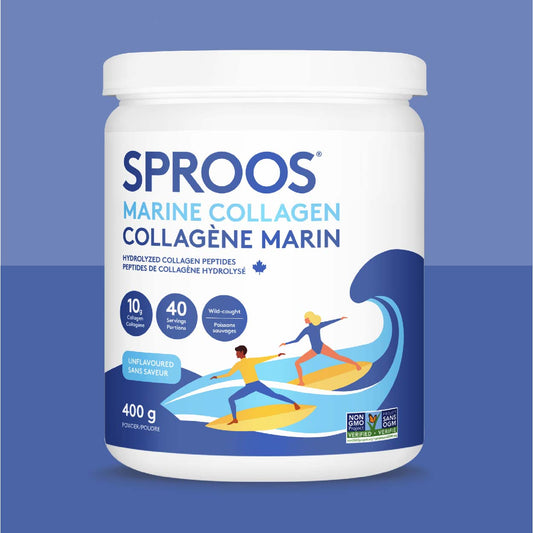
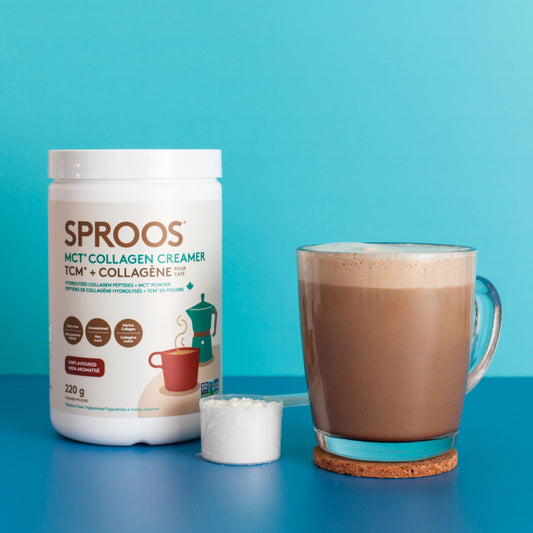
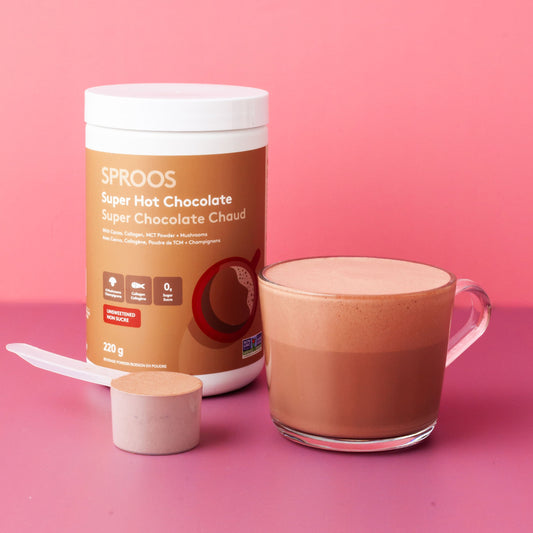




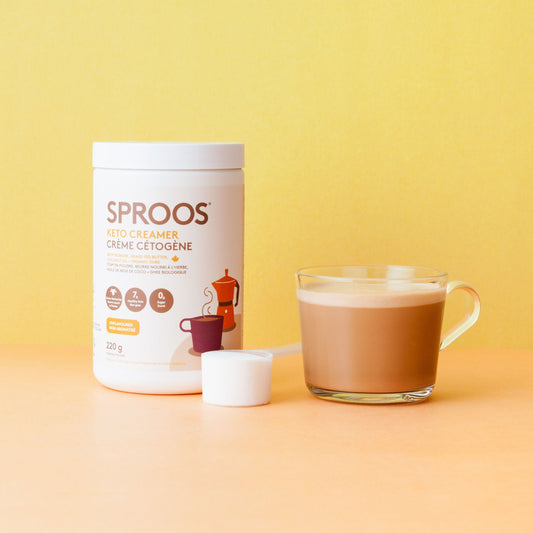
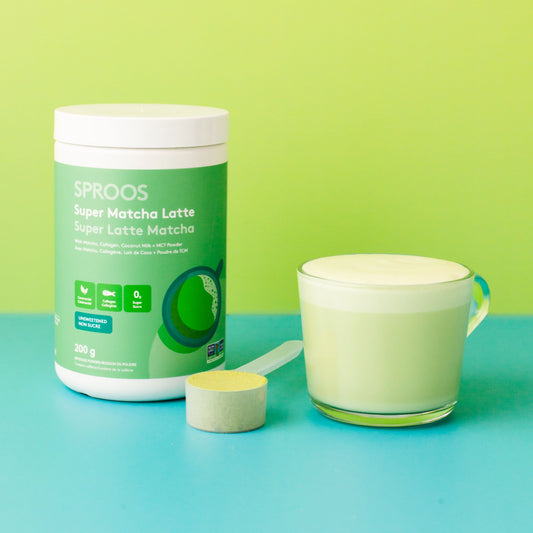


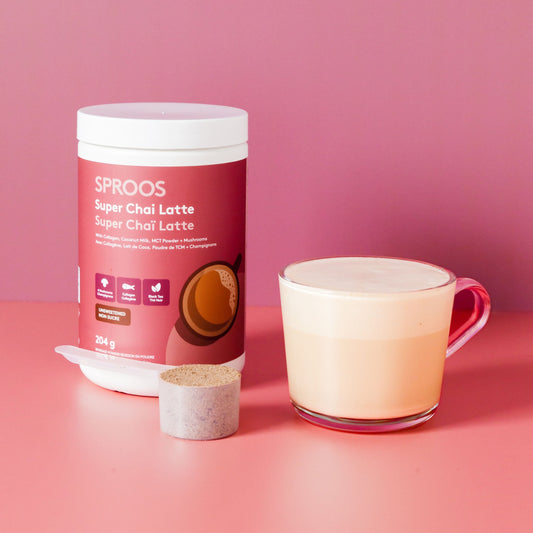
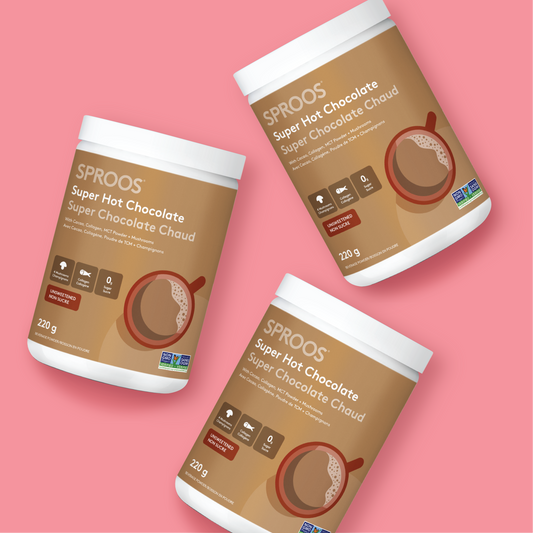
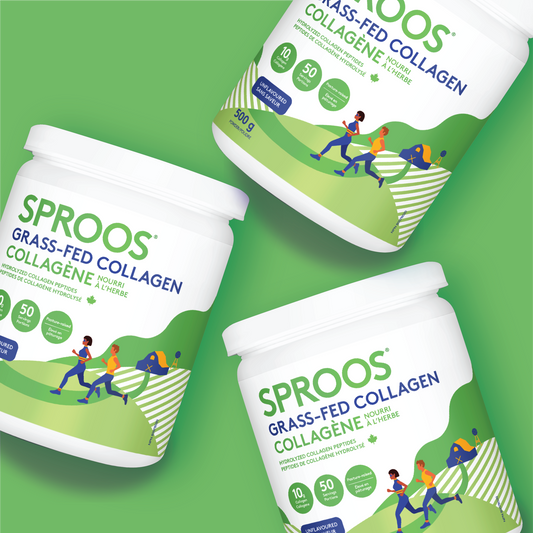
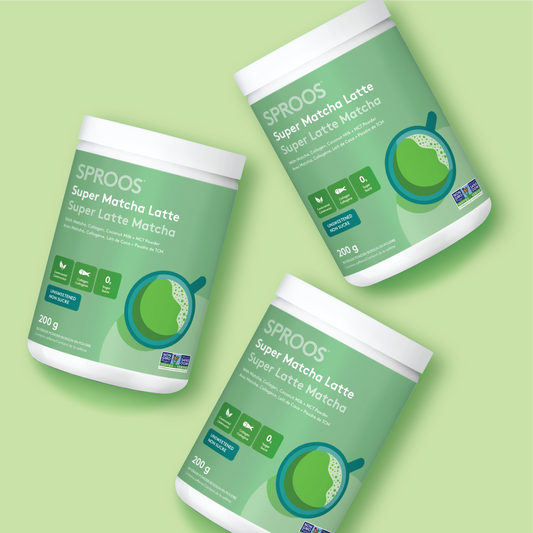
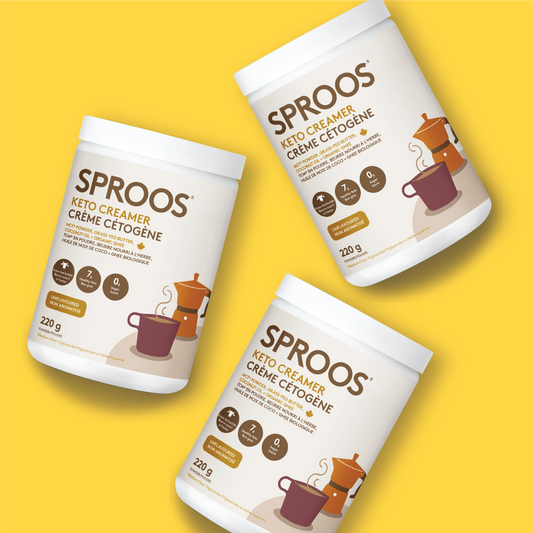
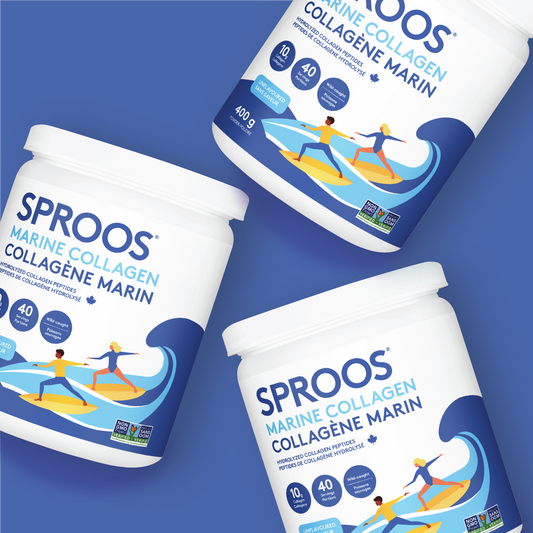
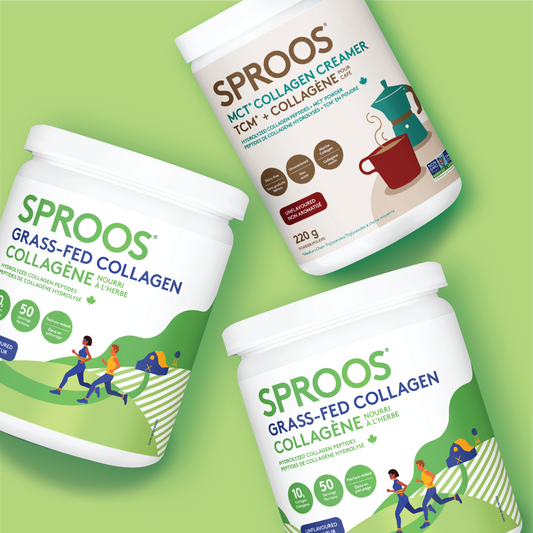
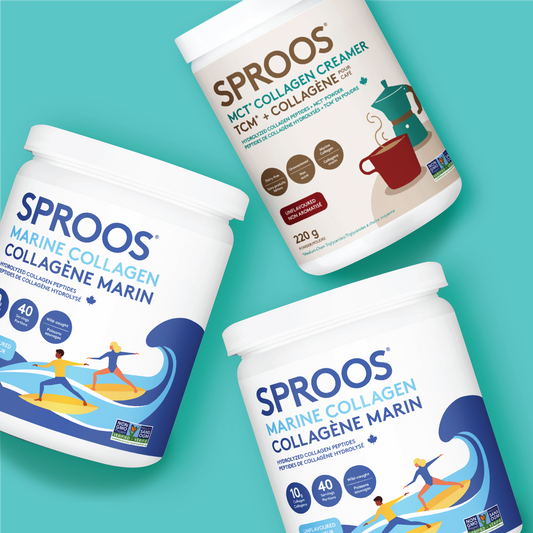
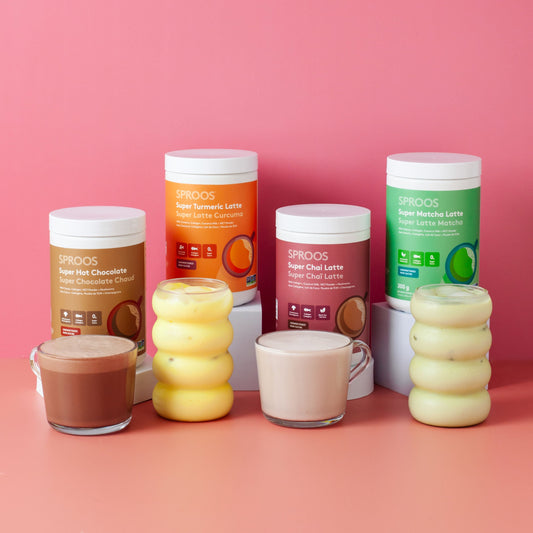
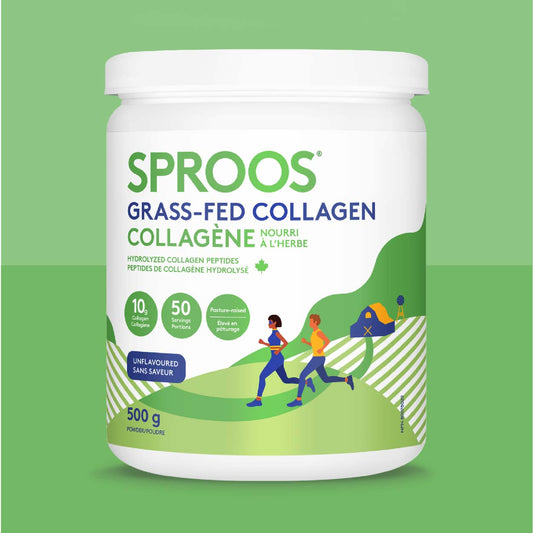
1 comment
Et le resveratrol ? S’il-vous-plaît est prit avec la quercetine ?